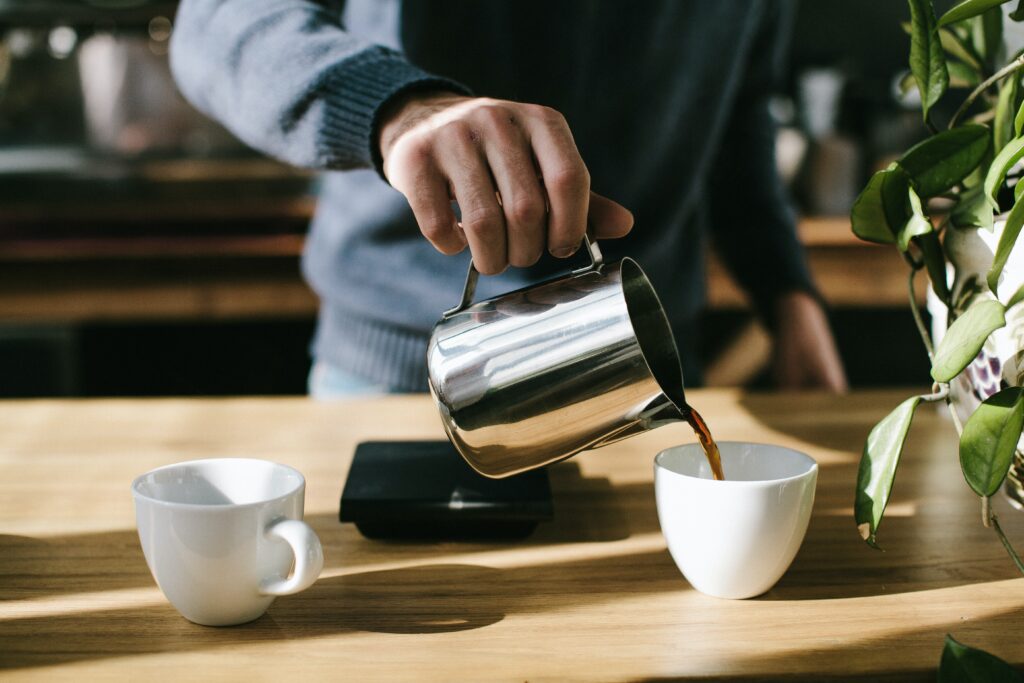
Coffee is a beloved beverage enjoyed by millions worldwide. While moderate coffee consumption can offer health benefits, excessive intake of caffeine can pose risks to our well-being. It’s crucial to determine the appropriate amount of coffee one can safely consume each day without surpassing the recommended limits. In this article, we will explore the recommended guidelines for daily coffee consumption, common symptoms of excessive coffee intake, how to assess caffeine content in your cup of coffee, and strategies to reduce your caffeine intake.
Determining Safe Coffee Consumption
To avoid adverse health effects, it’s important to stay within the recommended caffeine limits. The European Food Safety Authority (EFSA) advises healthy adults to consume no more than 5 cups of coffee per day, while pregnant women should limit their intake to 2 cups. However, it’s important to note that the caffeine content in coffee can vary significantly due to factors such as brewing method and coffee bean type. As a result, it is challenging to establish an exact number of cups one can consume without exceeding safe limits.
For a general reference, consuming 3 to 5 standard espresso coffees (25 ml each), 4 standard filter coffees (100 ml each), or 3 to 5 Nespresso machine coffees, depending on the capsule strength, is typically considered within safe limits. To ensure you don’t surpass the recommended daily caffeine intake of 400 mg, it is advisable to limit yourself to 2 to 3 cups of coffee per day, regardless of the coffee type.
Understanding Caffeine Intake
Caffeine is a stimulant found in various foods, beverages, and some medications. It is important to be aware of the caffeine content in different drinks and foods to assess your overall caffeine intake accurately. According to the EFSA, the toxicity threshold for caffeine is 400 mg/day for healthy adults, 100 mg/day for healthy adolescents, and 200 mg/day for pregnant women. Excessive caffeine consumption, typically above 400 to 600 mg/day, can lead to various health problems.
Caffeine Content in Coffee
The caffeine content in a cup of coffee can vary widely based on factors such as preparation method, the coffee bean used, and the coffee machine. On average, a cup of coffee contains between 50 and 150 mg of caffeine. However, larger store-bought coffees can contain as much as 323 mg of caffeine.
Here is an approximation of caffeine content in different types of coffee:
- Standard instant coffee (125 ml): 50-85 mg
- Nespresso: 19-147 mg
- Standard or long espresso (25-50 ml): 72-130 mg
- Filter coffee (100 ml): 110 mg
- French press coffee (100 ml): 100 mg
- Italian machine coffee (100 ml): 152 mg
- Cappuccino bought in a café (250 ml): 150-250 mg
- Decaffeinated coffee: 3-7 mg
It’s worth noting that these figures are approximate, and caffeine content may vary based on numerous factors.
Symptoms of Excessive Coffee Consumption
Consuming more coffee than recommended can lead to exceeding the daily caffeine limit, resulting in various symptoms. Common signs of excessive caffeine intake include:
- Nervousness
- Increased thirst
- Insomnia
- Headaches
- Irritability and anxiety
- Muscle pain and tremors
- Digestive disorders (diarrhea, reflux)
- Frequent urination
Experiencing these symptoms occasionally may indicate caffeinism, a state of intoxication caused by excessive caffeine consumption. If more severe symptoms like palpitations, difficulty breathing, fever, vomiting, or malaise occur, it may be a sign of caffeine overdose and immediate medical attention should be sought.
What to Do After Excessive Coffee Consumption
If you’ve consumed too much coffee or caffeine, it’s important to take appropriate steps to mitigate the effects. Consider the following recommendations:
- Stop consuming caffeinated beverages and foods.
- Avoid alcohol and smoking.
- Stay well hydrated by drinking mineral water rich in essential minerals.
- Adopt an anti-inflammatory diet with fiber-rich foods.
- Practice respiratory relaxation techniques to counteract the stimulating effects of caffeine.
- Engage in light physical activities like walking or low-intensity jogging.
- Use dietary sodium bicarbonate to reduce acidity in the body.
- Consider activated charcoal to help lower caffeine levels if taken soon after excessive caffeine consumption.
Additionally, keep in mind that caffeine remains in the bloodstream for several hours. It can take more than 10 hours to eliminate caffeine from your body.
Understanding the appropriate amount of coffee to consume is crucial for maintaining your well-being. While recommendations suggest limiting caffeine intake to no more than 400 mg per day, the actual number of cups one can safely drink varies due to varying caffeine content in different coffees. Monitoring your caffeine intake and being mindful of the symptoms of excessive coffee consumption is essential for enjoying coffee responsibly. By being aware of your caffeine consumption and making informed choices, you can ensure a healthier and more enjoyable coffee-drinking experience.


